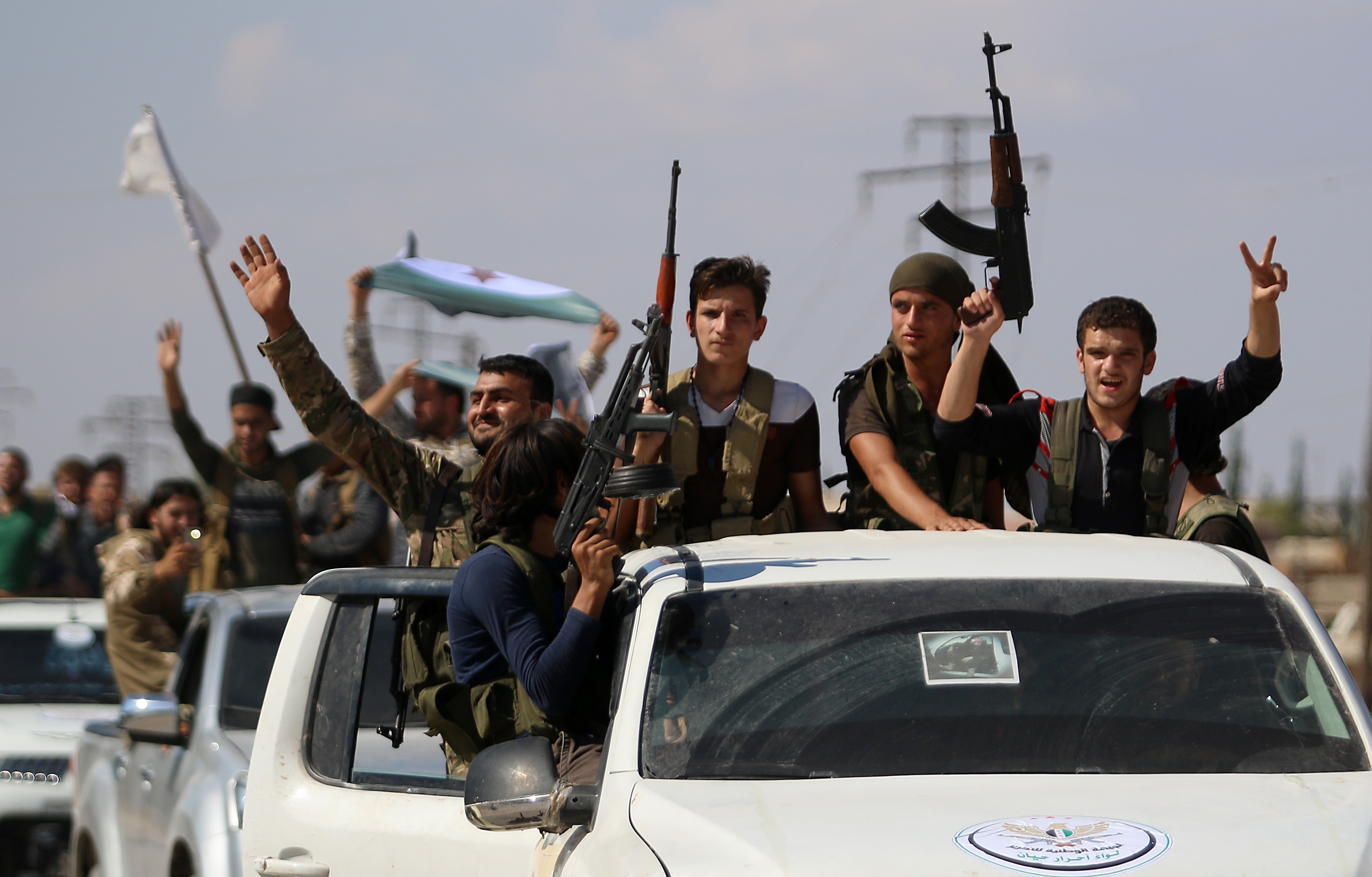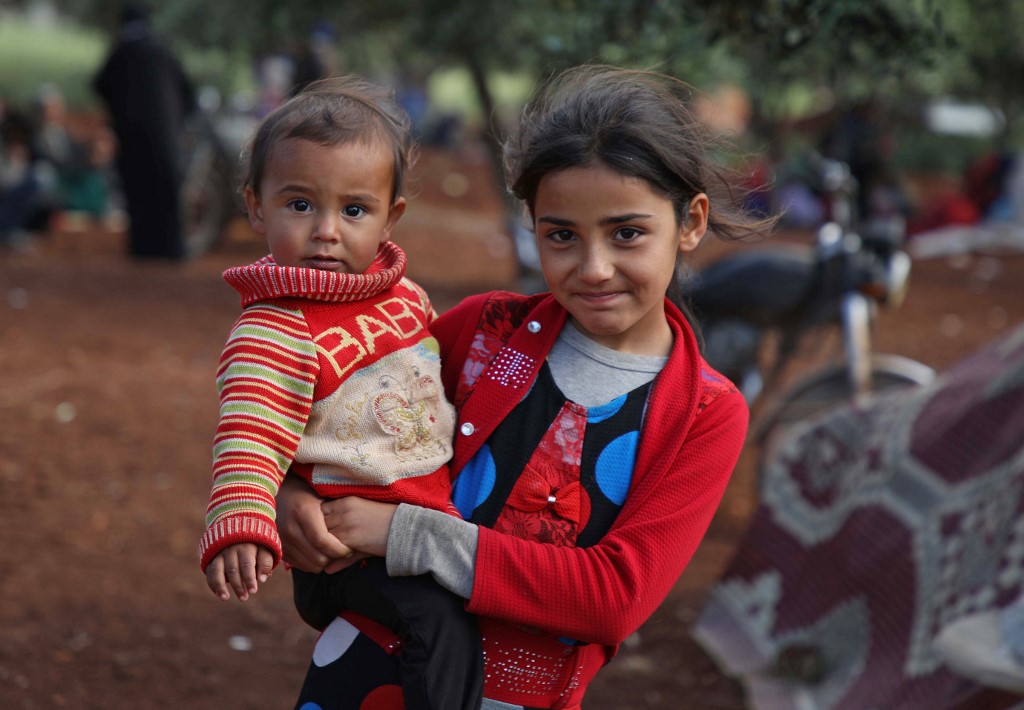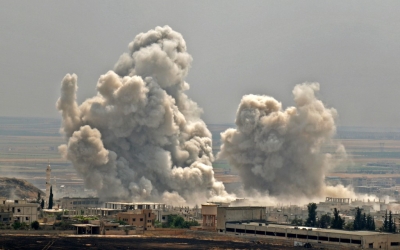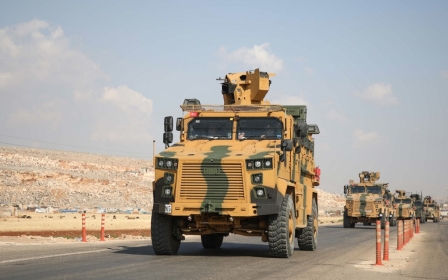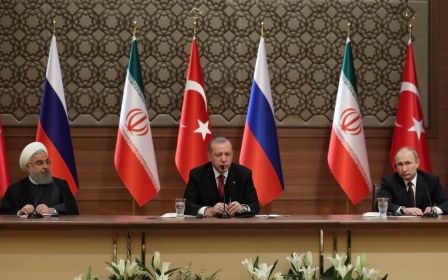Iran tanker crisis: Syria sanctions are hurting the people, not Assad
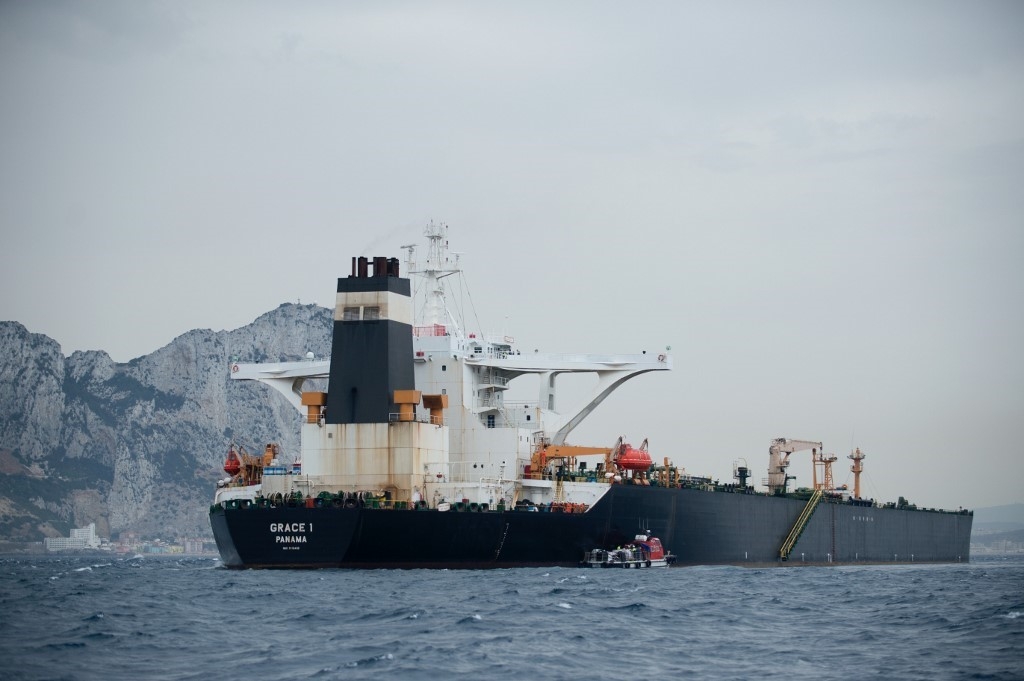
The fierce war of words between Donald Trump and the British government over the now-departing UK ambassador’s leaked comments about chaos in the White House is a trivial Twitter spat when seen against the shameful subservience of overall British foreign policy to Washington’s commands.
Nothing could demonstrate that more clearly than last week’s seizure by British naval forces of a tanker carrying Iranian crude oil which was sailing into the Mediterranean near Gibraltar.
Serious questions
The incident not surprisingly sparked significant media coverage in the UK and in international media. The evidence suggests the Royal Navy was acting on the basis of a US request using US intelligence assets which had been tracking the tanker since it left Iran.
Even if the tanker had entered Gibraltar’s waters before the boarding, there are other doubts over the legality of the navy’s actions
Second, serious questions have been raised over whether the tanker was in international waters when British marines boarded it in what may have been an act of piracy. Even if the tanker had entered Gibraltar’s waters before the boarding, there are other doubts over the legality of the navy’s actions.
New MEE newsletter: Jerusalem Dispatch
Sign up to get the latest insights and analysis on Israel-Palestine, alongside Turkey Unpacked and other MEE newsletters
If the motive was to enforce US sanctions on Iranian oil exports, there is nothing to justify that. Britain, like the rest of the European Union, had declined to join the US in imposing sanctions on Iran over Iran’s nuclear programme.
A bankrupt policy
Now, it seems, Britain is obediently changing policy. The tanker was carrying Iranian crude oil to the refinery at Baniyas in Syria, so the primary motive for the boarding looks more like a decision to enforce sanctions on Syria rather than Iran.
These anti-Syrian sanctions have been mandated by the EU since 2011 but they lack United Nations authority, so the boarding raises further legal questions. Iran is not a member of the European Union and is perfectly entitled to trade with Syria.
Whatever the legality of the British action, the incident will have had some value if it helps to highlight the bankruptcy of British, EU and US policy on Syria.
Eight years after Western governments called for Bashar al-Assad’s departure and started funding and arming opposition forces, Syria lies in ruins, hundreds of thousands are dead and millions of people have been forced to flee their homes, but Assad remains in power.
In 2018, the UN estimated that as many as 250,000 Syrians could go back home to try to rebuild their lives, but the EU continues to refuse aid and investment for reconstruction. More than five million have fled the country.
Syria's desperate people
They claim they need to use aid as a form of political pressure to “get Assad to return to the negotiating table”, even though opposition intransigence has been equally at fault in blocking any progress in six years of futile talks in Geneva.
The people who suffer from the Western insistence on making reconstruction aid conditional on Syrian government concessions are not Assad or his senior military and civilian officials but Syria’s desperate people.
The denial of aid for recovery comes on top of years of sanctions which have already had a terrible impact on Syrians without affecting the life-style of the top echelons of the government
EU policy is absurdly short-sighted. European governments are struggling to house and feed millions of displaced Syrians who have come to Europe. Turkey hosts three million who are living precariously in crowded and miserable accommodation.
Though many will never be keen to return to their war-torn towns and villages, those who do wish to try are being treated as pawns and punished by the EU which fears that refugee return will be seen as reinforcing an Assad victory.
The denial of aid for recovery comes on top of years of sanctions which have already had a terrible impact on Syrians without affecting the life-style of the top echelons of the government.
Sanctions block oil needed for hospital generators and raise the price of fuel for ordinary people’s cooking and heating. They cripple the banking system making it hard for traders to operate as well as affecting the sending of remittances by overseas Syrians back to their families.
The prohibition on transmitting funds or using international credit cards makes it hard even for charities working in opposition areas to pay their staff.
On assignment for MEE in Damascus two years ago, I spoke to Dr Joseph Fares, the director of the Italian hospital. “We cannot import nitrous oxide which is needed for anaesthetics because they say it can be used to make bombs. We need helium to cool our MRI scanners but none is allowed to be imported. Many MRI centres are out of service across Syria. The sanctions were targeted on the Syrian government but I cannot understand why all Syrians should suffer,” he told me.
His hospital was built more than a hundred years ago to help Roman Catholic missionaries in Syria but now serves thousands of ordinary Syrians every year. It used to be financed in part by donations from Italy but “we cannot receive money from Italy anymore because they can’t transfer funds to Syrian banks,” Dr Fares explained.
One-sided stories
The crisis is unlikely to have changed since then, though details are hard to measure. Idriss Jazairy, the UN Human Rights Council’s special rapporteur on the effect of sanctions on Syria, reported last September that sanctions cannot be said to have caused the current humanitarian crisis, “as it cannot be disentangled from the violence that has taken place in Syria since 2011. What is undisputed, however, is that they do contribute to a worsening of the humanitarian situation”.
These anti-Syrian sanctions have been mandated by the EU but lack United Nations authority
He referred to the sanctions on Syria as some of the “most complicated and far reaching sanction regimes ever imposed”. As well as the US and EU, financial sanctions are also put on Syria by Australia, Canada, Japan, Norway, Switzerland, Turkey, and the Arab League.
The worst aspect of the Syrian tragedy is of course the continuing war. Islamic State group (IS) has been defeated but the US continues to occupy large swaths of eastern Syria in defiance of international law.
A brief moment of dissent by Trump last year when he announced a full pull-out was quickly reversed under pressure from Washington hawks.
The main US purpose is to prevent Assad from regaining control of Syria’s main oil fields - another severe sanction on hopes of reviving the country’s economy. Washington is also urging its Syrian Kurdish allies to reject Damascus’s offers of a negotiated return of government officials to the Kurdish-held north-east in exchange for enhanced local autonomy.
In Idlib in the north-west Western policy is to resist efforts by Assad’s forces and the Russian government to liberate the area from the al Qaeda-linked Hay'at Tahir al Sham fighters who swept other extremist groups aside and took almost total control in January.
According to the Syrian Network for Human Rights, "Hay'at Tahrir al Sham’s seizing control of areas of Idlib governorate has undoubtedly increased the suffering of civilians since most of the civil society organizations there have ceased their provision of assistance, while Hay’at Tahrir al Sham has inflicted extremist and authoritarian practices against the people."
Last year, Russia managed to broker a ceasefire supported by promises from Turkey that it would disarm those fighters and persuade them to go home in what was called a de-escalation deal.
But no significant disarmament has been made. Russian officials said it was Turkey's responsibility "to stop rebels in Idlib from firing at civilians and Russian targets".
The usual one-sided Western media stories have also returned with reports accusing Russia and the Syrian government forces of targeting hospitals, alongside statements from Western officials that Russia faces serious consequences if it goes on with a military campaign in Idlib.
An honest policy
The time has surely come for a deep and honest Western re-think. Sanctions and the denial of reconstruction aid hurt Syrian civilians and ensure the further immiseration of the country.
Foreign military occupation of eastern Syria which maintains the de facto partition of the country cannot be justified in international law. Support for Turkey’s role in northern Syria is equally wrong.
It may be hard for the West to acknowledge that its Syria strategy has achieved nothing positive. But failure to change tack will only prolong the agony of Syrians.
The views expressed in this article belong to the author and do not necessarily reflect the editorial policy of Middle East Eye.
Middle East Eye delivers independent and unrivalled coverage and analysis of the Middle East, North Africa and beyond. To learn more about republishing this content and the associated fees, please fill out this form. More about MEE can be found here.



